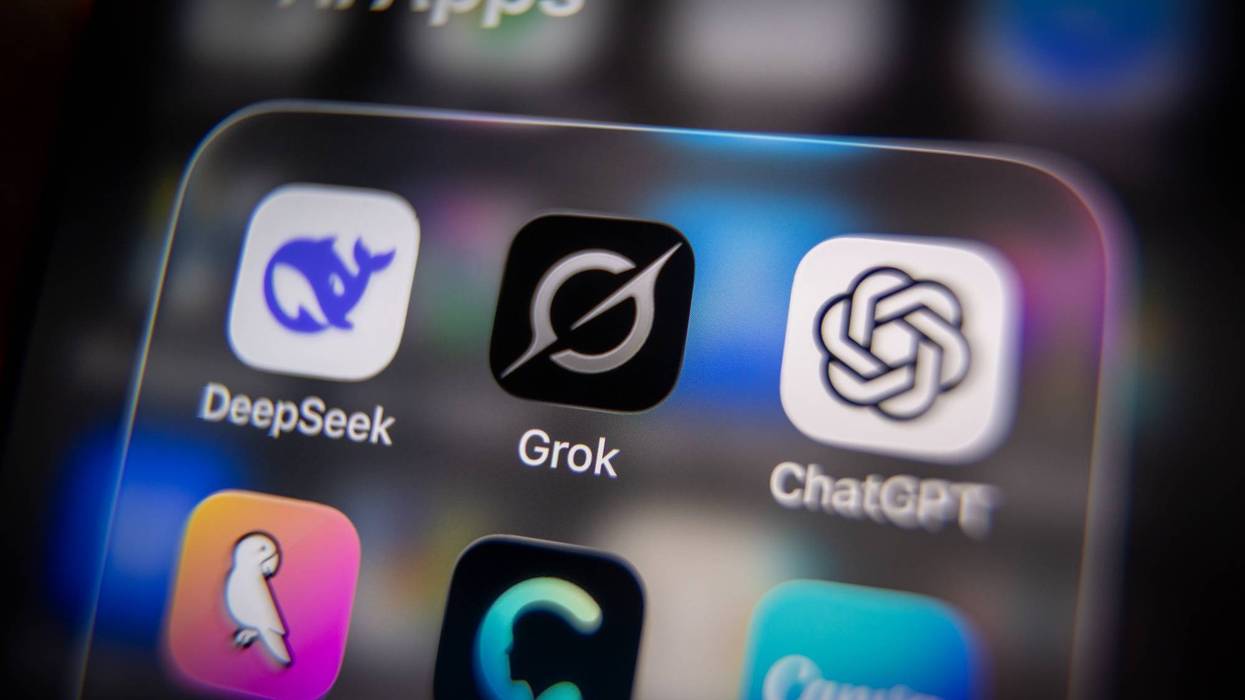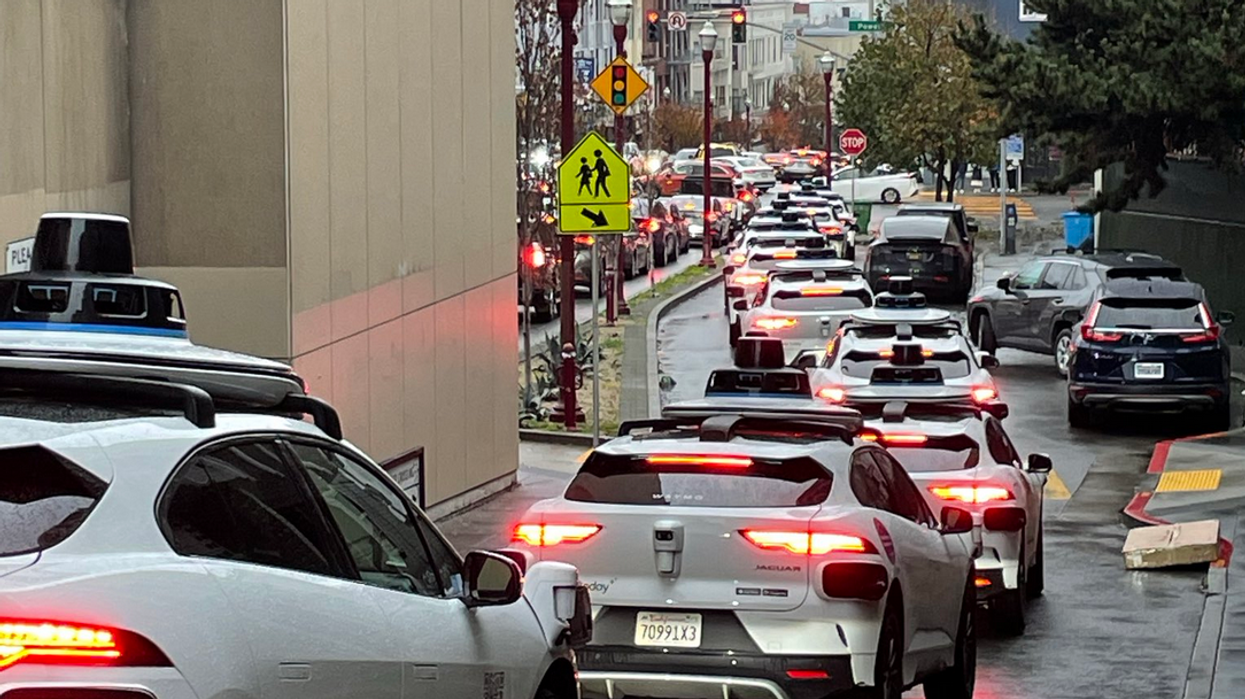Mubashir’s case is horrifying, but it’s becoming a common occurrence in President Donald Trump’s America. In April, Juan Carlos Lopez-Gomez was arrested, detained. and threatened with deportation after “biometrics indicated he was not a citizen.” This, despite his insistence that he was a US-born citizen and offering his Real ID as proof. Lopez-Gomez was eventually released once his story gained national news coverage.
Another example: two ICE agents stopped Jesus Gutiérrez after he exited a Chicago gym. He didn’t have any identification on him, but he told officers he was a US citizen. Agents took a facial scan using the app Mobile Fortify to determine his legal status. While Gutiérrez wasn’t arrested, the experience left him traumatized.
Somehow, for the Trump administration, a voter ID is enough to prove one’s citizenship at the ballot box, but a Real ID is not enough proof if masked men randomly assault and question you about your legal status on the street.
In each of these cases, a person of color is stopped without probable cause or justification, forced to undergo biometric scans, and has their freedom left to the discretion of an algorithm.
These technologies function to silence those whose rights are being violated. Mubashir, Lopez-Gomez, and Gutiérrez all insisted that they were citizens—they all told the truth. However, for those agents, their words, even their state and federal documentation, were insufficient. Under ICE’s technologically driven terrorism, the only thing that definitively clears suspicion is biometric identification. The presumption is that people may lie, documents may be forged, but biometric scans are objective and certain. People are guilty until an algorithm proves them innocent.
However, biometric scanners are far from precision tools. Several of the problems with these technologies are spelled out in the Biometric Technology Report jointly submitted by the Department of Homeland Security (DHS), the Department of Justice (DOJ), and the White House Office of Science and Technology Policy (OSTP). According to the report, factors such as “facial features, expressions, obstructions, exposure, and image quality” can all influence the results of biometric scanners. Moreover, a “key challenge” for facial recognition algorithms is that they are more likely to err “when comparing images of two people who look comparatively similar,” such as family members. These algorithms also “yield consistently higher false positive match rates when applied to racial minorities.” This is the algorithmic bias problem.
DHS, as a co-author of the report, is clearly aware of these problems. Yet, they still choose to prioritize these algorithms when confronting people they merely suspect of being undocumented—a feature that is impossible to tell simply by looking at a person.
This choice, however, is strategic. DHS and ICE are using these algorithms to help minimize their own responsibility. If Mubashir is arrested, it’s because the biometric scan was inconclusive. If Lopez-Gomez is detained, it’s because the algorithm says so. If Gutiérrez is released, it’s because the algorithm cleared him. The responsibility for the arrests, threats, and psychological harms these people experience has now been offshored onto an algorithm that cannot be held accountable.
After all, if the algorithm incorrectly identifies you as being undocumented, who do you appeal to? Even if the system is wrong, it’s now the voice of the accused against a voiceless algorithm. Unless an actual person is finally willing to listen to you, your words and documents won’t matter. Unless the press—an institution that is constantly under attack by the Trump administration—raises the alarm on your behalf, you may find yourself detained for weeks.
Even if someone speaks out after they’re released, DHS simply denies any wrongdoing. Despite more than 170 confirmed cases of US citizens being kidnapped by ICE agents, Homeland Security Secretary Kristi Noem still claims that “we have never once detained or deported an American citizen. We have not held them or charged them. When we find their identity, then that is when they are released.”
What’s interesting here is this notion that “their identity” must be found, as if it’s some grand mystery that requires an entire array of surveillance and identification technologies. As if this problem hasn’t already been solved by the invention of identification documents. Somehow, for the Trump administration, a voter ID is enough to prove one’s citizenship at the ballot box, but a Real ID is not enough proof if masked men randomly assault and question you about your legal status on the street.
DHS claims that biometrics “help enable operational missions, both to support national security and public safety, and deliver benefits and services with greater efficiency and accuracy.” The reality is that these technologies widen the scope of who is vulnerable to ICE’s secret police. So long as the algorithm legitimizes the agent’s racial profiling, anyone can become a legitimate target of state violence. This violence has already been judicially legitimized by Supreme Court Justice Brett Kavanaugh’s absurd ruling that immigration agents can deliberately target people on the basis of race, language, employment, or location.
The threat of biometric and surveillance technologies is only growing larger. DHS is still heavily investing in more invasive technologies that target undocumented immigrants and citizens alike. This will be a different struggle, but there are things we can do right now. First, we need to support independent news organizations that work to keep the public informed. The extent to which we know about many of these technologies is due entirely to the incredible work being done by journalists.
Second, we need to build tools and networks to support each other. This includes developing our own technologies to warn people about ICE raids, such as the website “People over Papers” and the “ICEBlock” app. Recording and posting pictures of ICE’s cruelty to popular social media sites is also incredibly important. The people who recorded Mubashir’s illegal arrest helped his story become national news.
Third, we need to put more pressure on Democrats to curb this violence. Democratic candidates running in 2026 are already integrating calls to “Abolish ICE” into their platforms. There is also movement at the state and federal level to stop ICE kidnappings. This includes bills like California’s SB 805 and SB 627 and Illinois’ HB1312, as well as HR 4456 and HR 4843. Even the recent House Homeland Security Committee saw Democrats holding Noem responsible for ICE’s abuses. These are positive steps, but more work is still needed.
While the road will be daunting, together, we can keep each other safe.




